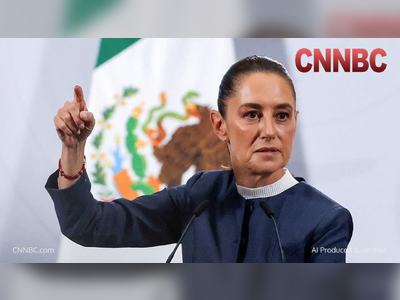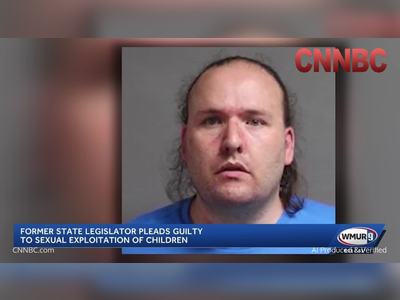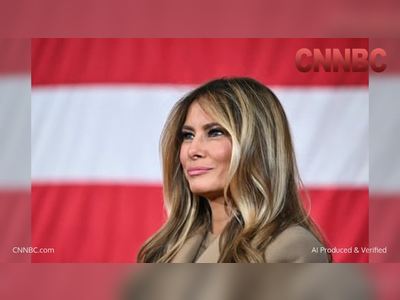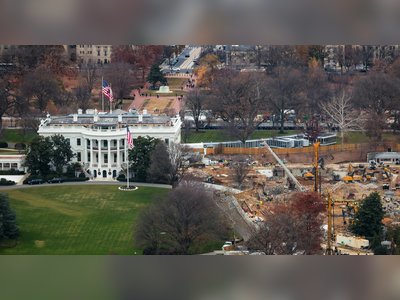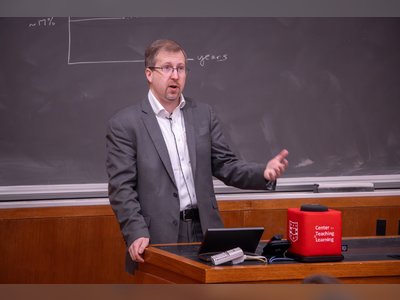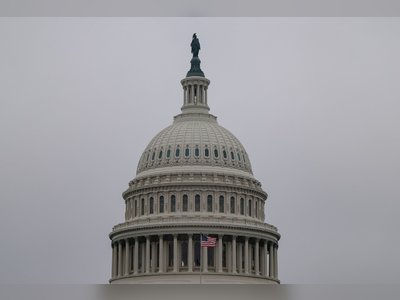Trump Team Enforces Social Media Silence Ahead of Senate Confirmation Hearings
President-elect Donald Trump’s nominees instructed to avoid social media posts as confirmation battles loom.
President-elect Donald Trump’s incoming administration has implemented a strict directive for nominees to refrain from public social media activity ahead of Senate confirmation hearings.
Susie Wiles, Trump’s chief of staff, issued the reminder in a memo emphasizing that no member of the transition team or future administration speaks on behalf of the United States or the president-elect without prior approval.
The Directive
The memo, dated December 29 and obtained by The Post, calls for nominees to obtain clearance from the incoming White House counsel before making any public social media posts.
“While this instruction has been delivered previously, I am reiterating that no member of the incoming administration or Transition speaks for the United States or the President-elect himself,” Wiles wrote.
Wiles, nicknamed the "Ice Maiden," acknowledged the enthusiasm among nominees about joining Trump’s second term but maintained the need for discipline during the confirmation process.
The Stakes
With Senate confirmation hearings beginning next week, Trump’s nominees face what is expected to be a challenging process.
Republicans hold a slim majority, and with potential unified opposition from Democrats, the loss of just three Republican votes could derail a nomination.
The memo reportedly was not issued in response to recent controversies involving figures like Elon Musk and Vivek Ramaswamy, who have drawn attention for their opinions on H-1B visas.
These individuals, associated with the Department of Government Efficiency (DOGE), do not require Senate confirmation and thus are not bound by the directive.
Key Nominees Under Scrutiny
Several of Trump’s nominees have faced heightened scrutiny in recent weeks.
Former Representative Matt Gaetz withdrew his nomination for attorney general after a private whip count indicated insufficient support in the Senate.
Other high-profile nominees, including Pete Hegseth for secretary of defense, Robert F.
Kennedy Jr. for health and human services, and Tulsi Gabbard for national intelligence, have been preparing for contentious hearings.
Hegseth has faced allegations related to personal conduct, including accusations of excessive drinking and sexual misconduct.
Despite criticism, he has received support from influential senators, such as Joni Ernst of Iowa, who described her discussions with him as "encouraging." Hegseth has also taken a combative stance, accusing the media of "anti-Christian bigotry" for mischaracterizing his tattoos.
Robert F. Kennedy Jr. and Tulsi Gabbard, both former Democrats, are expected to face rigorous questioning on their policy stances and previous political affiliations.
Both have largely avoided public statements since Christmas, aligning with the directive issued by Wiles.
Background and Strategy
The silence from Trump’s nominees reflects the administration’s efforts to maintain a unified message and avoid controversies that could jeopardize confirmations.
All nominees requiring Senate approval have been engaging in closed-door meetings with lawmakers, including Democrats, to garner support.
The directive underscores the high stakes for Trump’s second term, as his cabinet appointments are seen as critical to advancing his policy agenda.
While nominees like Hegseth have publicly defended their records in the past, the administration appears to be prioritizing discretion to navigate the politically charged confirmation process successfully.
With hearings set to begin, the focus will remain on whether Trump’s nominees can secure the necessary support in a sharply divided Senate.
Susie Wiles, Trump’s chief of staff, issued the reminder in a memo emphasizing that no member of the transition team or future administration speaks on behalf of the United States or the president-elect without prior approval.
The Directive
The memo, dated December 29 and obtained by The Post, calls for nominees to obtain clearance from the incoming White House counsel before making any public social media posts.
“While this instruction has been delivered previously, I am reiterating that no member of the incoming administration or Transition speaks for the United States or the President-elect himself,” Wiles wrote.
Wiles, nicknamed the "Ice Maiden," acknowledged the enthusiasm among nominees about joining Trump’s second term but maintained the need for discipline during the confirmation process.
The Stakes
With Senate confirmation hearings beginning next week, Trump’s nominees face what is expected to be a challenging process.
Republicans hold a slim majority, and with potential unified opposition from Democrats, the loss of just three Republican votes could derail a nomination.
The memo reportedly was not issued in response to recent controversies involving figures like Elon Musk and Vivek Ramaswamy, who have drawn attention for their opinions on H-1B visas.
These individuals, associated with the Department of Government Efficiency (DOGE), do not require Senate confirmation and thus are not bound by the directive.
Key Nominees Under Scrutiny
Several of Trump’s nominees have faced heightened scrutiny in recent weeks.
Former Representative Matt Gaetz withdrew his nomination for attorney general after a private whip count indicated insufficient support in the Senate.
Other high-profile nominees, including Pete Hegseth for secretary of defense, Robert F.
Kennedy Jr. for health and human services, and Tulsi Gabbard for national intelligence, have been preparing for contentious hearings.
Hegseth has faced allegations related to personal conduct, including accusations of excessive drinking and sexual misconduct.
Despite criticism, he has received support from influential senators, such as Joni Ernst of Iowa, who described her discussions with him as "encouraging." Hegseth has also taken a combative stance, accusing the media of "anti-Christian bigotry" for mischaracterizing his tattoos.
Robert F. Kennedy Jr. and Tulsi Gabbard, both former Democrats, are expected to face rigorous questioning on their policy stances and previous political affiliations.
Both have largely avoided public statements since Christmas, aligning with the directive issued by Wiles.
Background and Strategy
The silence from Trump’s nominees reflects the administration’s efforts to maintain a unified message and avoid controversies that could jeopardize confirmations.
All nominees requiring Senate approval have been engaging in closed-door meetings with lawmakers, including Democrats, to garner support.
The directive underscores the high stakes for Trump’s second term, as his cabinet appointments are seen as critical to advancing his policy agenda.
While nominees like Hegseth have publicly defended their records in the past, the administration appears to be prioritizing discretion to navigate the politically charged confirmation process successfully.
With hearings set to begin, the focus will remain on whether Trump’s nominees can secure the necessary support in a sharply divided Senate.


